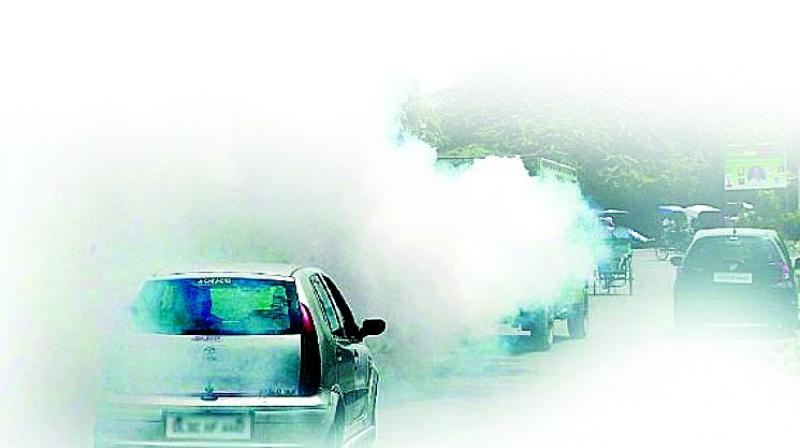Air pollution may disrupt sleep
Pollution caused by traffic may also damage DNA in kids.

People who live in areas with high levels of air pollution are up to 60 per cent more likely to suffer a bad night’s sleep, a new study warns. “The study indicates the possibility that commonly experienced levels of air pollution not only affect heart and lung disease, but also sleep quality,” said Martha E. Billings, assistant professor at the University of Washington.
Researchers analysed data from about 1,863 participants with an average age of 68 years. They looked at two of the most common air pollutants: nitrogen dioxide (NO2), a traffic-related pollutant gas, and PM2.5 — fine-particle pollution.
Researchers used air pollution measurements, local environment features and sophisticated statistical tools to estimate air pollution exposures at each participant’s home at two time points: one year and five years. They calculated “sleep efficiency” — a measure of the percentage of time in bed spent asleep vs awake with the help of wrist actigraphy.
The group with the highest levels of NO2 over five years had an almost 60 per cent increased likelihood of having low sleep efficiency compared to those with the lowest NO2 levels.
Meanwhile, another study found that children and teens exposed to high levels of traffic-related air pollution may be at an increased risk of a specific DNA damage called telomere shortening typically associated with ageing.
Researchers assessed the relationship between polycyclic aromatic hydrocarbons (PAHs), a “ubiquitous” air pollutant and shortening of telomeres. As the exposure to PAHs increased, telomere length decreased in linear fashion.

